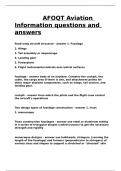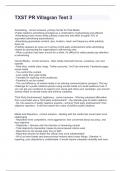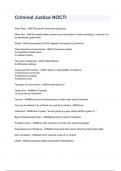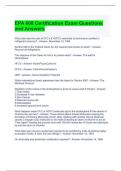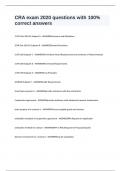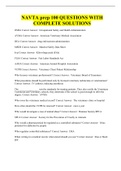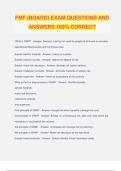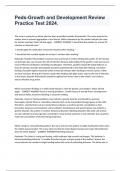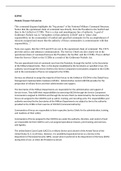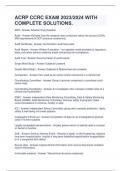Exam (elaborations)
AFOQT Aviation Information questions and answers
- Course
- Institution
fixed-wing aircraft structure 1. Fuselage 2. Wings 3. Tail assembly or empennage 4. Landing gear 5. Powerplant 6. Flight instruments/controls and control surfaces fuselage body of an airplane. Contains the cockpit, the cabin, the cargo area if there is one, and attachment points for o...
[Show more]
